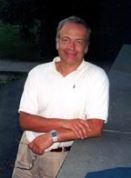Fall 2004, Volume 22.1
Poetry

Michael Salcman
Michael Salcman is a physician, brain scientist, and essayist on the visual arts. He was chairman of neurosurgery at the University of Maryland and is president of the Contemporary Museum in Baltimore. His poems have appeared or are forthcoming in Raritan, Notre Dame Review, Poet Lore, Harvard Review, Barrow Street and Atlanta Review. He has published two chapbooks Plow Into Winter (Pudding House, Ohio, 2003) and The Color That Advances (Camber Press, New York, 2003).
See other work by Michael Salcman at: http://www.PEEKreview.net https://www.camberpress.com https://www.puddinghouse.com https://www.nd.edu/~ndr/review.htm https://fullcirclejrnl.com/
The Gray Cat
Why is the Persian cat at the window
watching the snow fall?
Why so enthralled by what he's seen
before, the gray squirrel who runs across
the maple branches that bat on our kitchen
walls, the shaking leaves, the snow plow
painting geometric tracks
down our street?
I know how simple movement excites him;
it makes the cells in his brain fire
each time a sharp-edged bar crosses
the frontier of a receptive field, and how
the subsequent pump of adrenalin
makes his eyes grow wild
with the possibility of game.
But as I watch his tail, I know I'm wrong.
It flicks like a slow metronome,
as if watching snow fall were a problem
in philosophy, like the nature of free will
or the improbability of superimposed flakes
on stone. He paces the sill like a caged
panther. Of course, he'd never keep his coat
clean and dry out where the wild hare is
busy making tracks like clover leafs.
He'd miss our warm grates, his dish
of gruel, and the place on my blanket
where he sleeps at night.
By what standard can he judge
the value of the exchange he's made?
He has no mortgage to pay
no children to feed; blind greed
makes him jump at the darting light
my watch flashes moth-like on the wall.
His paws slap at the ghostly emblem
I flick as often as I can.
Tycho's Gold Nose
Most days at the office, Tycho Brahe wore
a brass and silver nose
to replace the one a friend sliced off
in a student duel at Wartenberg
debating mathematics.
At receptions and weddings, he wore a nose
of gold and glued it to the stump
with putty he kept in his snuff box.
One day he saw a new star blaze
in Cassiopeia, and this knowledge
made him rich. The King gave Tycho
an island near Elsinore
where he built an observatory.
There he kept a dwarf named Jepp
to predict the future and a tame elk who died
falling down the steps drunk on Danish beer.
He built eight foot sextants and statues run
by clocks, held wild parties,
and chained his peasants for back taxes.
One night a comet rose beyond
the moon, and Tycho knew it meant death
to the Ptolemaic spheres—
was Copernicus right?
Surely, sun, moon and stars
were centered on the earth as he was
by the same gravity that held the birds;
only the outer planets circled sol.
Despondent, he fought with everyone,
including the King, and had to leave in a hurry
for Prague. There he hired young Kepler
to crunch his numbers. Still inebriated
by astrology, he died from a bladder infection
brought on by excessive love-making and drink.
But I think the ellipses did him in.
Like most of us, Tycho never learned to ride
a universe built on flat wheels, and so he flew
over the handlebars, contradicted
by what his nose knew—
some hearts can't bear the smell of truth.
Ut Pictura Poesis
"As is painting, so poetry," a phrase
it's words to the left, pictures to the right
and the rest of us somewhere in between,
riding the brain's corpus callosum
like an all-night subway, numb
with the effort it takes
to pull things together.
Leonardo inscribed in his Notebooks
a gibe against wordsmiths,
thus: "Is it better to be dumb
and a painter or blind and a poet?"
Not much of a choice today, I think,
when pictures make music
and words paint scenes.
Across this great divide of eye and tongue,
how does the self hold on?
